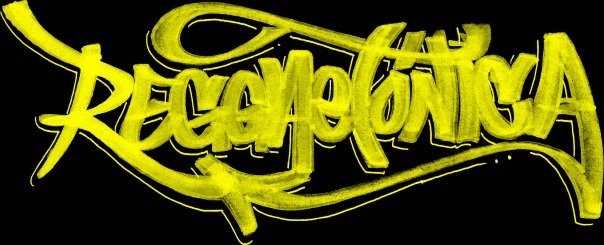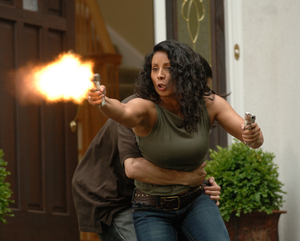
It’s not often that we get to listen to the voices of the artists, activists and young professionals that represent the idealism, thirst for social justice and contradictions of the hip-hop generations. TV, radio, magazines and newspapers are usually saturated by hip-hop’s most predictable and cliché products. That is why I enthusiastically recommend folks go see the play Till the Break of Dawn, written and directed by two time Obie award winner Danny Hoch.
The action takes place over the course of Summer 2001 and focuses on a group of young New Yorkers that travel to Cuba to participate in Havana’s hip-hop festival. Most of them are Latinos, the organizer Gibran (Jaymes Jorsling) is African American and the man in charge of financing the trip is Adam (Matthew-Lee Erlbach), the Jewish owner of a small record label that promotes politically engaged rappers. Their diverse ethnicities, races, educational backgrounds and political stances provide great opportunities for the playwright to explore some of the complexity of young urban voices.
 (Image by Sara Krulwich/The New York Times)
(Image by Sara Krulwich/The New York Times)The rest of the traveling crew includes foul-mouthed and ill-tempered Big Miff (Dominic Colón) and schoolteachers Rebeca (Maribel Lizardo) and Robert (Johnny Sánchez), a couple that is constantly at each other’s throats and fighting over matters ranging from the most trivial to the profoundly philosophical. Then there’s Nancy (pattydukes) a Dominican art curator and her boyfriend Hector (Flaco Navaja), a Boricua web designer who is equally passionate about revolutionary ideals and smoking weed.
Once in Cuba, the group meets characters that challenge their political naivete and fiery arrogance, schooling them about the constantly shifting terrain between idealism and reality. Among the characters they meet in Cuba are Dana (Gwendolen Hardwick), an ex-Black Panther and U.S. political exile who lives in Cuba, and Felito (Luis Vega) a young Cuban who is perpetually quoting U.S.-made commercials and rap lyrics.
This play is charged as much with humor as with political and social commentary. It provides enjoyment and insights for spectators coming from any angle. But I will put on my educator’s hat now and stress that the play is, in particular, a must-see for young hip-hop fans, their parents and teachers. It provides a rare opportunity at entertainment as well as tons of food for thought, written in a language and style that will appeal to young folks because it will strike them as their own.
The play opened September 13 and will run until October 21 at the Abrons Arts Center (212-352-3101) in Manhattan’s Lower East Side. 466 Grand Street (corner of Pitt Street).






